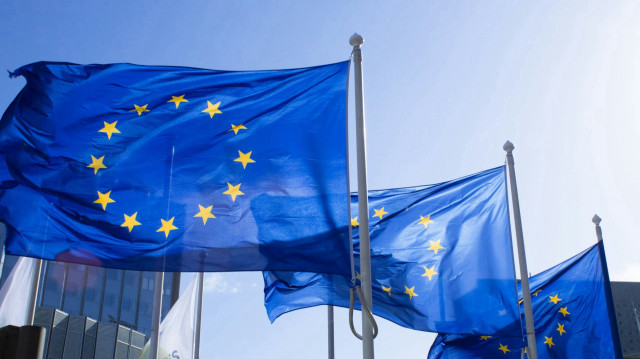
Opinion may be divided over the EU's ability to weather the coming year's gathering storm, but there can be no doubt that 2025 is set to be far more testing than years past
The winds of change are blowing hard around the world, and European Union (EU) policymakers in Brussels are divided over whether Europe should prepare for a particularly icy blast, or can still hope for gentler breezes. Economic forecasters suggest the former, while political analysts are somewhat more optimistic. Broadly, the divide is between those diplomats and senior officials who look to the European Union as a skillful helmsman capable of steering the EU's 27 member countries towards calmer waters, and more independent commentators who fear the European ship of state risks being holed beneath the waterline by growing political turmoil, notably but not solely in France and Germany.
- The challenges awaiting Europe
True believers in the strengths of EU unity point to Ursula von der Leyen's deft assembly of her second European Commission without losing any nominees in the European Parliament's confirmation hearings. The result is a "business as usual" atmosphere in Brussels as her new team prepares to face the challenges of 2025. This mood of quiet confidence is reinforced by the knowledge that von der Leyen has eclipsed her grey-suited male predecessors to become a globally recognized figure, thanks in part to her charismatic look and brightly colored jackets. Von der Leyen is thus seen by many as an adroit leader who handled the COVID-19 pandemic well, and in addition to rallying support for Ukraine is responding to the economic challenges confronting Europe. Others say her "dictatorial" style risks fracturing the EU's member governments and is unwelcome inside the commission itself.
Opinion may be divided over the EU's ability to weather the coming year's gathering storm, but there can be no doubt that 2025 is set to be far more testing than years past. As well as the widely-debated "Trump factor" on whether he will dare to imperil American investors' trillion-dollar stake in European assets, there's also a sense of fast-narrowing options for rescuing the EU's stagnating economy.
The second half of 2024 has seen two authoritative studies of what ails European business and industry, although both have been more explicit in their analyses than in credible action plans. Mario Draghi, the eurozone's central banker whose "whatever it takes" pledge defused the 2012 sovereign debt crisis, summed-up Europe's economic outlook succinctly. He warned of a vicious cycle of weak domestic demand, insufficient macroeconomic stimulus, depressed investment, and low productivity. These symptoms aren't susceptible to any miracle cures. Nor are the ailments detailed by fellow Italian ex-Prime Minister Enrico Letta. His parallel report looked at the unfinished state of the EU's vaunted single market, and concluded that an enormous act of collective political will is now needed. Above all, he singles out the absence of a unified capital market to kick-start more high-tech innovation. The good news, then, is that Europe is heading into 2025 and beyond with a far sharper focus on its own potentially crippling structural weaknesses. The bad news is that the political muscle to fashion and introduce solutions is no longer available.
- Is there a hope for the EU to recover and become united once again?
Roughly one in four of the MEPs elected in June to the European Parliament is to some degree or other a euro-sceptic. Europe's politics have been re-landscaped by right-wing political parties, some of them outright populists with radically nationalist agendas, others of a more conventionally conservative nature but unlikely to hand more autonomous new powers to the EU. From outrightly xenophobic to mildly euro-sceptic, the EU's member governments can no longer be counted on by Brussels to support expensive and far-sighted economic strategies. How the crises that in 2024 engulfed the French and German governments will eventually play out remains to be seen. But with the populist Rassemblement National and Alternativ für Deutschland parties snapping at their heels, it's hard to see a return of the Franco-German "locomotive" that pulled the project of European integration out of doldrums in the 1980s.
That's the big picture. It isn't bright, but many European commentators reassure themselves that it's far less dark than that of the other major pillar of the liberal Western world - the United States. Only time will reveal the disruption and chaos to be wreaked by the second Trump Administration, but many in Europe comfort themselves with the thought that greater EU unity has always been born out of adversity.
*Opinions expressed in this article are the author's own and do not necessarily reflect Anadolu's editorial policy.







